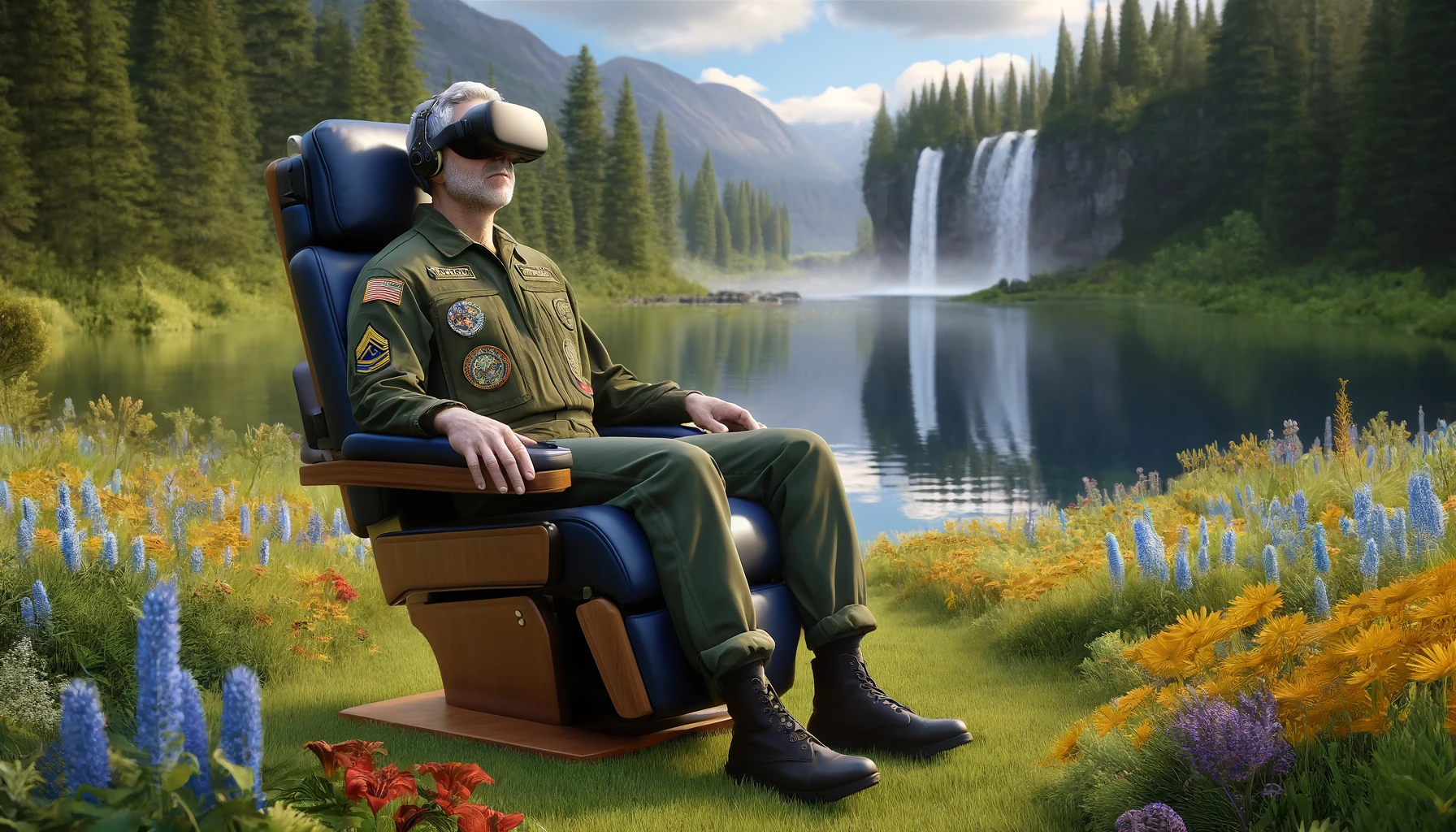Restoring Serenity: How Sound and Visual Immersion Therapy Transforms Veteran PTSD
Hello everyone,
3 min read
 Nerdle
:
May 23, 2024 1:11:05 PM
Nerdle
:
May 23, 2024 1:11:05 PM

Post-Traumatic Stress Disorder (PTSD) is a significant mental health issue affecting many
military veterans. The traumatic experiences endured during service can leave lasting
psychological scars, often manifesting in debilitating symptoms. As technology advances, new
and innovative treatments are emerging. Among these, Virtual Reality (VR) therapy is showing
promise as a powerful tool in helping veterans cope with and recover from PTSD.
Military service can leave lasting marks on the body, but the psychological scars often remain
unseen. PTSD is one such invisible wound. It can manifest in a variety of ways, including:
The prevalence of PTSD among veterans varies, but studies suggest that approximately 11-
20% of veterans who served in operations such as Iraqi Freedom and Enduring Freedom
experience PTSD in a given year. For Vietnam veterans, the lifetime prevalence is estimated to
be around 30%. These statistics underscore the significant impact of military service on mental
health.
Traditional treatments for PTSD include therapy, medication, and support groups. While these
methods can be effective, they often have limitations:
Virtual Reality (VR) therapy is an emerging treatment that offers a unique approach to
addressing PTSD in veterans. VR therapy involves immersing the patient in a controlled virtual
environment that simulates traumatic experiences. This method has several benefits:
In VR therapy, veterans wear a VR headset that immerses them in a virtual environment. The
therapy typically involves:
Research on VR therapy for PTSD is promising. Studies have shown that VR therapy can
significantly reduce PTSD symptoms in veterans. For example, a study by the University of
Southern California’s Institute for Creative Technologies found that VR therapy led to a notable
reduction in PTSD symptoms for many participants. These positive outcomes highlight the
potential of VR as a transformative tool in mental health care for veterans.
PTSD is a challenging condition that many military veterans face as a result of their service.
Virtual Reality therapy offers a new and promising approach to treating PTSD, providing
controlled, immersive, and personalized experiences that can help veterans heal. By embracing
innovative treatments like VR therapy, we can better support veterans on their journey to
recovery, honoring their service by ensuring they receive the care and respect they deserve.
VRenity is at the forefront of transformative therapeutic technology, crafting immersive
experiences that envelop the senses and foster tranquility. Our innovative solutions are set to
revolutionize the way individuals engage with mental wellness, utilizing the latest in audio and
visual technology across popular VR platforms. Prepare for a new dimension in wellness, where
serene soundscapes meet dreamlike visuals, all within the reach of your VR headset.

Hello everyone,

Post-Traumatic Stress Disorder (PTSD) is a significant challenge faced by many veterans and active-duty military personnel. Traditional treatment...

VRenity.com's cutting-edge immersion technology is revolutionizing the way therapy is approached for military veterans and individuals who have...